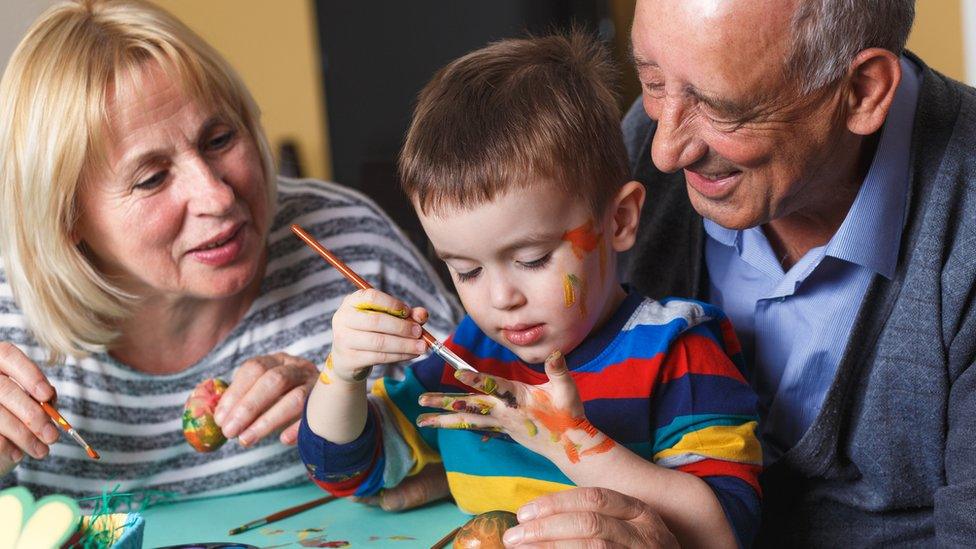Grandparents help more UK mums get back to work
- Published

Grandparents are helping more mothers get back to work but the rising pension age means they may face a conflict over providing care in the future.
A report from the University of Birmingham shows women's participation in the workforce rose by 26% when their parents or in-laws helped out.
Dr Shireen Kanji said: "People arrive at the doorway of work, but a lot goes on behind them to get them there."
However, she said grandparents could face more pressure to continue in work.
The report states that "a competitive job market and expensive childcare options" mean mums rely heavily on their families.
It looked 14,000 mothers in the UK who had a child in 2000. It examined who they named as their main source for after school and weekend care for children aged between four and five years old.
It found that 36% of single working mothers primarily relied on their parents - usually their own mother - for childcare. That dipped slightly to 32% of women with a partner.
The report said it was not just part-time work that mothers were returning to, it said that "full-time employment has also increased".
The report's author, Dr Kanji, said: "Grandparents are providing a lot of care at the moment. It is having a causal affect - these women would not be in work if they could not get grandparents' care."
The data found proximity played a key role in helping women, with 40% of working mums living within 15 minutes of their own parents.
Hidden contribution
Dr Kanji said it was important to recognise the contribution that grandparents were making: "Unpaid work is hidden but it is fundamental to the way that society functions."
However, she said: "Grandparents themselves are under pressure to extend their paid working lives as a result of recent changes to the state pension age."
The female pension age is in process of rising to 65 years old to match male retirement.
The state pension age will then rise to 66 for both genders by 2020 and, under the Conservative government, will reach 67 by 2028.
Life expectancy is also growing.
According to insurance brokerage Willis Towers Watson, a woman turning 65 in 2000 could expected to live to 86.3 while a man might live until he is 83.4.
A woman reaching 65 in 2017 could live to 88.8 years old and a man could survive until 86.6.
Dr Kanji said the rise is not necessarily something that will affect people who are grandparents now as "they might not have worked in the past". But she said: "For people working now, it will become an issue."
She said that families would have to have a discussion about childcare in the future: "It is not an easy choice. They may feel a moral obligation to provide this care, but it will have an impact on them."
- Published4 October 2017
- Published2 October 2017